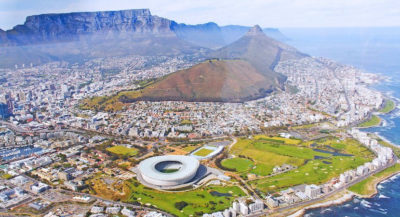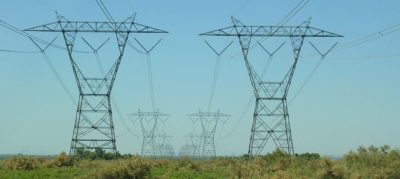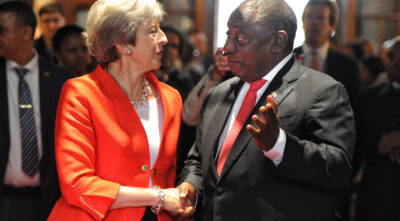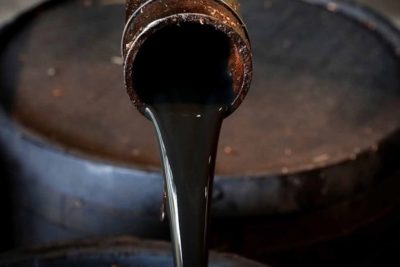
In September 2018 the statistical experts at Statistics South Africa claimed the nation was officially in recession. So what’s been happening since then, and what’s in store for the remainder of 2019? Here’s what you need to know about the future fortunes of the Rainbow Nation.
A familiar kind of recession
South Africa’s current economic troubles are not exactly unexpected. The slump being faced by President Cyril Ramaphosa is very similar to the one faced by his predecessor Jacob Zuma. The difference is Ramaphosa is thought to have a much better economic track record than Zuma, and that’s giving the people of the Rainbow Nation hope.
While there’s no cause to be complacent, this semi-recession needn’t become a disaster. September 2018 also saw George Saravelos, the global co-head of FX research at Deutsche Bank, predict South Africa’s recession could drive a fall in the value of the Rand, a drop to R24 per dollar, this year. But he also said that the weak Rand wasn’t wholly down to the recession, it’s something that actually mirrors the economy in many other emerging markets right now.
Electricity supply nightmares

Electricity supply is a huge issue in South Africa. The nation’s energy regulator blames insufficient supplies of coal, a fuel the country must eventually stop using anyway because of its impact on climate change. In winter months they suffer from load shedding, the interruption of an electricity supply to avoid excessive load on the generating plant. And there have been some terrible coal station disasters.
On the other hand, some feel the crisis is cynically manufactured by the government to squeeze more cash from taxpayers. While load shedding has been the name of the game since November 2018, in an attempt to prevent the grid collapsing, at the same time nobody seems to have a good reason why the grid should collapse in the first place. The former Eskom CEO Matshela Koko has actually admitted load shedding is more of a political diversion than a way to regulate energy use.
It looks like load shedding could even be damaging the economy. One energy expert claims the current levels of stage 1 load shedding cost the economy R20 billion every month, stage 2 load shedding for the same period costs R40 billion a month and stage 3 costs the country R80 billion a month. Worse still, these are numbers from 2015, and they could be a lot higher for 2019.
An unwise VAT hike has cut overall spending in South Africa
South Africa brought in a sharp VAT rise in early 2019, with a new VAT rate of 15% designed to ease the nation’s budget deficit. It was supposed to target high net worth individuals but appears to have missed the mark, instead driving reduced spending across the board. Now some believe there’s another VAT rise on the cards, something that could suppress the South African economy in the longer term as well as damage it more in the short term. What’s going on? Apparently the ‘technical recession’ of 2018 saw a huge drop in tax collection, and that’s why the government is so keen to recoup funds via extra VAT.
The Brexit effect reaches far and wide

The Brexit debacle is also having an effect. It doesn’t impact South Africa directly, of course, but plenty of South African companies are headquartered in Britain. If there’s no deal and the UK crashes out, where will they relocate to maintain that essential EU presence? It’s a tricky decision. Do they hang onto their important UK alliances at the risk of suffering EU losses, or the other way round?
Elections on the way
Things are often rocky during an election year, and in 2019 South Africa is holding elections. At the same time a recession always affects electoral support, and investor sentiment can change dramatically at times like this. Even though Zuma was widely seen as a disastrous leader, Ramaphosa has a tough job to do and faces potential trouble from loyal Zuma fans. The ruling party will probably struggle to impose stabilising measures on the economy. If they fail to create economic stability, we could see a flood of valuable foreign withdrawing altogether.
Crude oil prices and the USA’s Africa Strategy

Crude oil prices of about $50 a barrel tend to suit emerging markets well in the short term. But any more drops in oil prices could be a sign of overall low worldwide economic growth. Rich nations like Germany and the USA are experiencing slow growth for the first time in a long time, but the underlying decline in the stock market doesn’t bode well. Add to that the fact that the USA is now the world’s biggest crude oil producer and you can see how an oil war could easily kick off between America, Saudi Arabia and Russia – bad news for everybody.
The US’s ‘Africa Strategy’ aims to boost US-African relations and kill off existing partnerships with Russia and China. South Africa has strong ties with both Russia and China, and messing with them could prove a disaster even if the USA doesdecide to invest in the country. At the moment China is one of South Africa’s biggest trade partners by export sales, much more important than the US’ contribution.
American sanctions on South Africa’s trade partners
While South Africa has been China’s biggest trade partner for nine years in a row, the US is busy piling sanctions on China. The US has also imposed sanctions on Russia. The trade war between the US and China is still going on, which means there’s no sign of calmer waters yet and those caught in the middle continue to suffer. If there’s a full-on trade war, South Africa might not be able to stay wholly neutral, another bad situation to be in.
The conclusion? Rough seas ahead!
Uncertainty is the name of the game right now, even if South Africa eventually brings about a positive economic turnaround. At the same time business doesn’t just stop dead just because there’s a recession. In fact plenty of businesses thrive during recession because they’re exceptionally strong and sturdy, while their less-future-proofed competitors go out of business. If you’d like to grab a detailed list of South African companies to approach with innovative, exciting sales and marketing campaigns, there’s still a huge amount of fat to be had, and good amounts of new business to scoop up.


